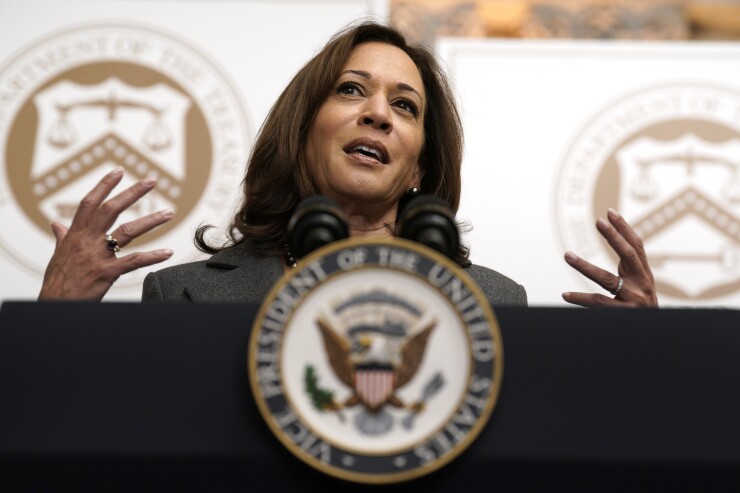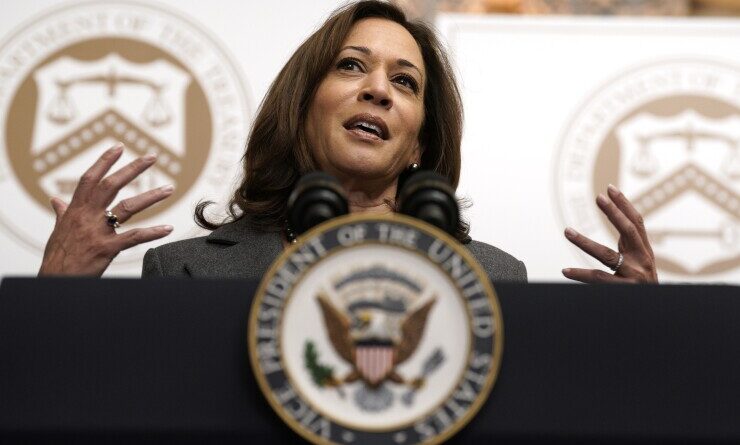Banks need to be at the center of Harris’ “economic opportunity.”

Bloomberg News
Back in 1989, Steven Covey published “.
I thought about this last week as I watched the debate between Vice President Kamala Harris and her opponent, former President and Republican presidential nominee Donald Trump. While it wasn’t the time of the most intense debate, Harris’s insistence on what he called “opportunity economics” struck me as a great tagline for a positive vision of how the economy should how it feels to most Americans.
“I believe in the aspirations, the aspirations, the dreams of the American people,” Harris said in an interview. That is why I think and have a plan to build what I call an economic opportunity.
Harris had revealed the phrase several weeks before the debate
Many of the heaviest planks of Harris’s economic opportunity platform don’t run directly through the banks — tax reform, student loan relief, expanded access to childcare and price controls have positive effects on the banking industry as a whole. But what he describes is a world in which the basic amenities of family life – a good home, a good job and children you can support – are beyond the reach of only the lucky and born well but also to workers. Americans too.
That is an admirable goal, both in political and practical terms. People who have or feel they can get what they want in life are happier, and happy voters are voters who will vote for you and vote for you again. And if people feel like their lives are moving toward some financial stability, they will spend and invest their money in ways that lead to a stronger and more stable economy. It’s also important to note that, for many Americans, those things are currently out of reach: family planning is already happening
When I think about what the opportunity economy will look like, it’s a world where consumer finance is handled primarily by banks and credit unions. Depository institutions – banks and credit unions – play by certain rules, and those rules exist to protect consumers, the financial system and the institutions themselves. If opportunity is the name of the game, IDIs can be the perfect partner in that game because you know they play in situations.
But the banking industry and the Biden administration have not had a good relationship so far, and the best illustration of that dysfunction is the Basel III capital proposal. The suggestion was made badly,
For the banking sector, the combination of confusion and new confidence has led to a series of accusations over everything.
If we have a Harris White House, the administration will need to find a way to achieve its goals of safety and stability in the banking industry without punishing the industry unnecessarily. Similarly, banks should also adopt an economic perspective as a desirable goal – not for selfish reasons but because a strong and growing middle class is filled with the types of bank customers and credit unions to be successful.
One aspect of the agreement that would satisfy both needs is to expand the scope of regulation to subject many non-banks involved in banking-like activities to the same regulatory burdens as banks. The
If there are enough houses for people to buy, they will still need a mortgage; If one wants to start a good business, one will need start-up capital. If the opportunity is there, people will find it – that’s the easy part. Turning an opportunity into something real safely, without scams or gimmicks is the hard part, but that’s what banking is all about. Moving on from the dysfunction of the past year or two in banking policy may seem like a secondary problem, but if Harris wants to make middle-class financial stability a reality for people many, you need to buy from banks. It’s too good an opportunity to pass up.
#Banks #center #Harris #economic #opportunity
